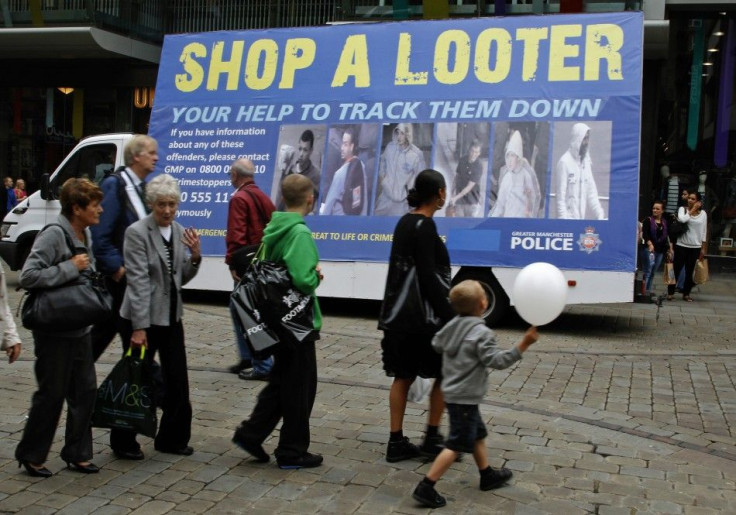London Riots 2011: 1,700 Arrests Test UK Prison Capacity

As England recovers from five nights of rioting, British police continue to make arrests. So far, Scotland Yard has apprehended around 1,700 people and they say the number is rising, according to the LA Times.
London courts are staying open 24 hours a day to continually process cases of burglary, theft and arson, sometimes with defendants as young as 11 years old.
Authorities are also working on three murder investigations. One man was shot in London on Monday night, while three were killed when they were struck by a car during Tuesday's riot in Birmingham. Additionally, a 68-year-old man in Ealing was beaten to death.
In northern cities like Liverpool, Salford and Manchester, police arrested about 200 people, and in the Midlands region, which is home to Birmingham, nearly 500 people were arrested.
According to reports, many of those brought to court are being processed swiftly, receiving fines. Yet, other sentences are harsher, and one looter received six-months in prison for stealing a case of water from a super market.
The number of prisoners in the UK has grown to record-setting numbers since the riots began, and the incarceration system is testing its total capacity. The Ministry of Justice is considering adding extra beds to two-person cells to accommodate the influx.
Police are currently pouring over security camera footage, attempting to identify looters from video stills. Authorities published a number of pictures online, hoping that rioters would be identified.
On Friday, Deputy Prime Minister Nick Clegg visited Nottingham's Canning Circus Police Station, which was firebombed Tuesday night.
Rioting started last Saturday in the north London neighborhood of Tottenham. People gathered on the main street to voice their anger of the fatal shooting of Mark Duggan. Violence quickly spread to a number of other London areas, such as Hackney, Peckham, Croydon, Ealing and Lewisham, before moving to Birmingham and Liverpool on Monday, and then Manchester, Birkenhead, West Bromwich, Salford and Wolverhampton by Tuesday.
© Copyright IBTimes 2024. All rights reserved.





















